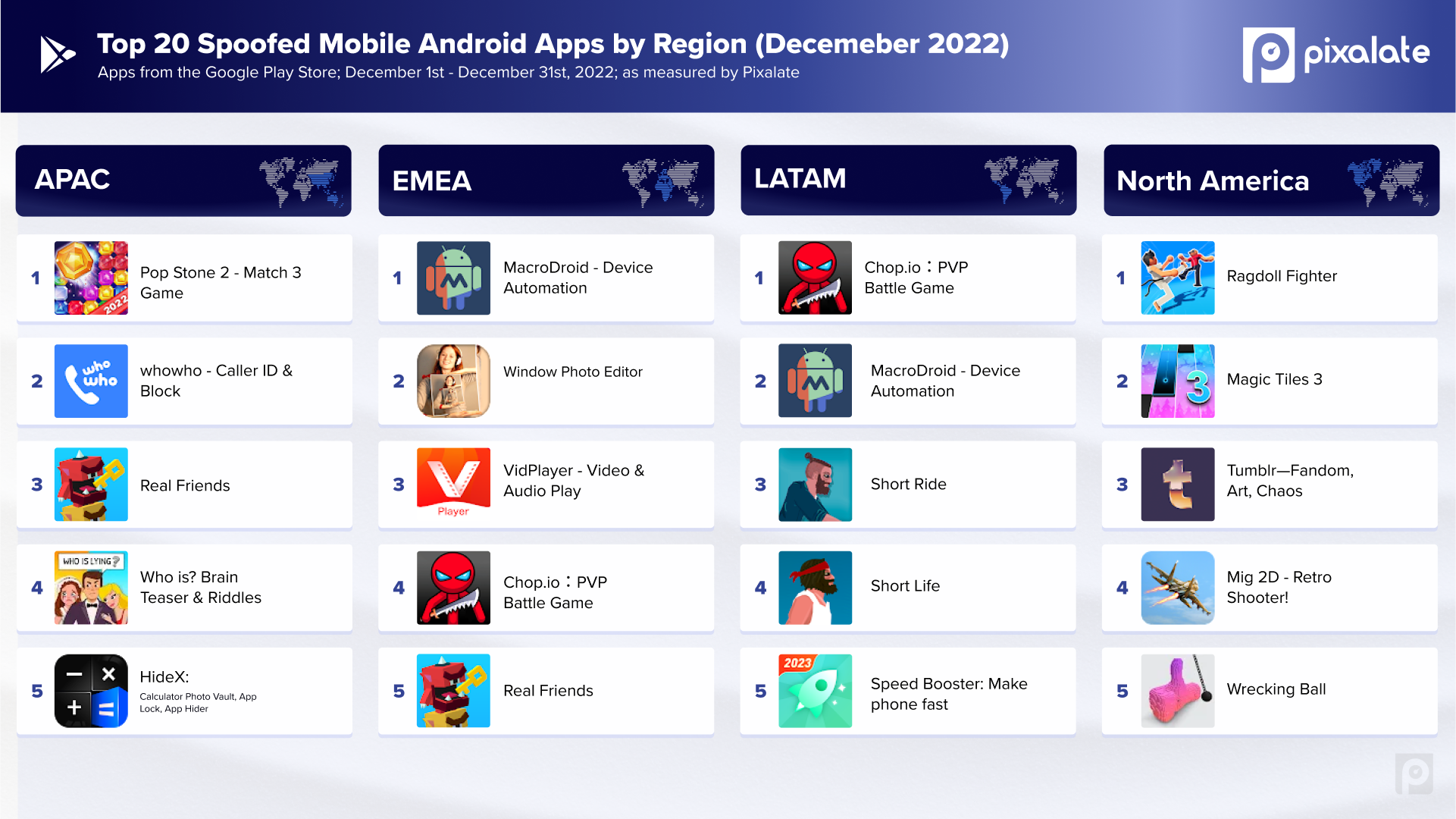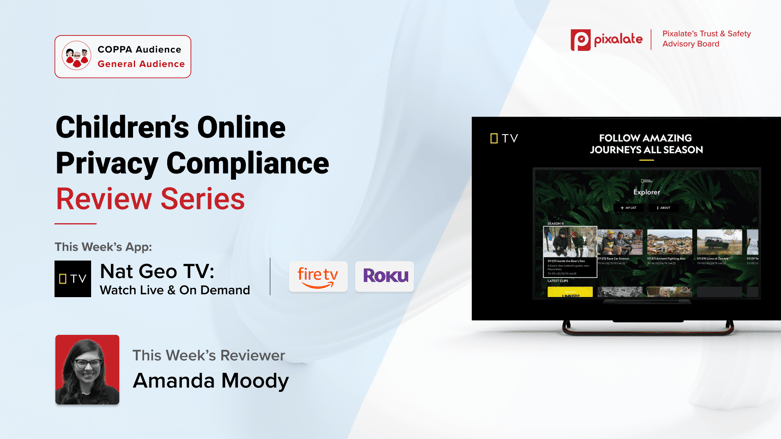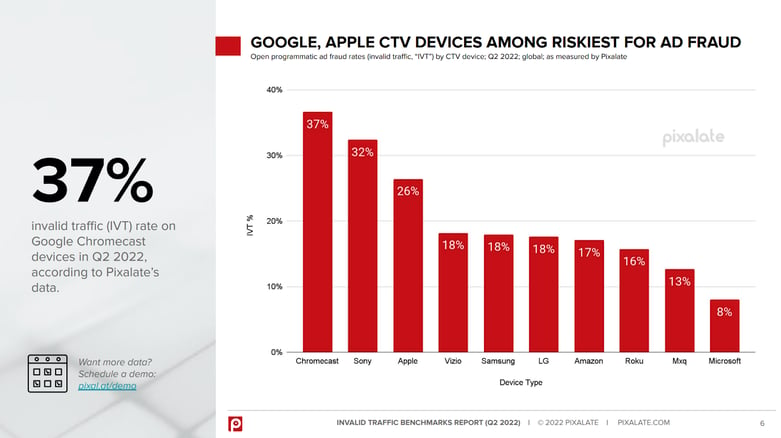
This week's review of ad fraud and privacy in the digital advertising space:
.png?width=982&height=552&name=First%20COPPA%20Compliance%20Technology_CTV_V2%20(3).png)
This week, Pixalate announced the launch of the ad industry’s first Children’s Online Privacy Protection Act (COPPA) compliance toolkit for CTV to identify and assess child-directed apps across the Roku and Amazon Fire TV app stores. Read more about it in our blog post, where you'll also be able to download our Q4 2022 CTV Roku vs. Amazon: COPPA Risk Scorecard Report.

Pixalate released the December 2022 edition of our Mobile Ad Fraud Series, where we highlight unique forms of invalid traffic (IVT), inclusive of “ad fraud,” across the mobile open programmatic advertising marketplace. This report covers Mobile App Spoofing numbers for December 2022. Read more about it in our blog post.

Pixalate continued its Mobile App Manual Reviews According to COPPA series, containing the detailed factors the Trust & Safety Advisory Board educators used to assess an app’s child-directedness. This week we reviewed Nat Geo TV: Watch Live & On Demand from the Amazon Fire TV App store and the Roku Channel Store. You can read the full review here.

This week we also reviewed GamingWithKev - Let’s Play from the Amazon Fire TV App store and the Roku Channel Store. Read the full review here.

Pixalate published the Q2 2022 Invalid Traffic (IVT) Benchmarks report last November, describing IVT distribution in programmatic advertising impressions. It covered a wide variety of data points, so we decided we would break it down further and highlight some interesting findings.
This week we looked at IVT rates, inclusive of ad fraud, across the top 10 most popular CTV devices. Find out more in our blog post.
MediaPost published an article about Start.io partnering with Pixalate to validate compliance against ad fraud on its mobile programmatic platform. Start.io sought to partner with a MRC accredited vendor to ensure that all inventory is legitimate.
From MediaPost:
"We've taken numerous actions to ensure that nothing can go live on our platform unless we have complete certainty about it, and this is yet another step toward 100% accountability," states Ravit Ross, CRO of Start.io.
Read the full article here.
*By entering your email address and clicking Subscribe, you are agreeing to our Terms of Use and Privacy Policy.
These Stories on Weekly Recaps
*By entering your email address and clicking Subscribe, you are agreeing to our Terms of Use and Privacy Policy.

Disclaimer: The content of this page reflects Pixalate’s opinions with respect to the factors that Pixalate believes can be useful to the digital media industry. Any proprietary data shared is grounded in Pixalate’s proprietary technology and analytics, which Pixalate is continuously evaluating and updating. Any references to outside sources should not be construed as endorsements. Pixalate’s opinions are just that - opinion, not facts or guarantees.
Per the MRC, “'Fraud' is not intended to represent fraud as defined in various laws, statutes and ordinances or as conventionally used in U.S. Court or other legal proceedings, but rather a custom definition strictly for advertising measurement purposes. Also per the MRC, “‘Invalid Traffic’ is defined generally as traffic that does not meet certain ad serving quality or completeness criteria, or otherwise does not represent legitimate ad traffic that should be included in measurement counts. Among the reasons why ad traffic may be deemed invalid is it is a result of non-human traffic (spiders, bots, etc.), or activity designed to produce fraudulent traffic.”

